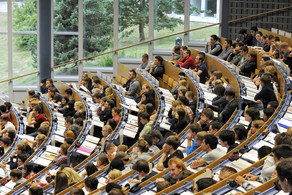Stochastic Optimal Control and MPC - Dissipativity, Risk, and Performance
It stands to reason that three of the most impactful concepts in systems and control in the 20th century have been the optimal control siblings – i.e. the Pontryagin Maximum Principle (PMP) and Dynamic Programming together with the Hamilton-Jacobi-Bellman approach – as well as the dissipativity framework for dynamic systems coined by Jan Willems. Moreover, Model Predictive Control (MPC) can be regarded as a successful attempt to alleviate the curse of dimensionality in solving the Hamilton-Jacobi-Bellman Equation (HJBE) by resorting to a receding-horizon application of open-loop optimal inputs – either obtained directly via the PMP or via direct solution methods for optimal control.
The last decades have seen significant progress, for example, in terms of stability and performance analysis of MPC considering nonlinear prediction models, real-time implementation of MPC, MPC accounting for uncertainty surrounding system dynamics and exogenous disturbances. To this end, disturbances may be treated in a stochastic or in a worst-case manner. While the usual control-centered approach to MPC considers underlying tasks such as setpoint stabilization and trajectory tracking, in the last years several breakthroughs were obtained in analyzing MPC with generic, i.e. economic cost functions, which do not express control tasks directly. Indeed, the analysis of these schemes uses concepts from the PMP, Dynamic Programming, and dissipativity notions. Moreover, these approaches are of major interest for directly optimizing process economics via closed-loop control in various applications ranging from process industries to energy systems and economics. Yet, from a systems and control point of view, the combination of stochastic uncertainty descriptions with economic objective formulations is not well-explored, despite the fact that combining both approaches promises great potential for applications.
In this context, this project develops new tools for analysis and numerical solution of stochastic optimal control problems and MPC. The proposed research enables the development of novel tools for economic optimization-based control of stochastic nonlinear systems. The focus of the project is on the development and understanding of stochastic dissipativity concepts and their use in analysing the closed-loop performance of stochastic economic MPC schemes. In addition to standard cost functions based on expectation and variance we also investigate risk-aware formulations. The methods are tested on benchmark problems for multi-energy systems, particularly on scheduling problems for energy storage populations under uncertainty.

Project Partners
Chair of Applied Mathematics, Department of Mathematics, University of Bayreuth
- Prof. Dr. Lars Grüne
- Dr. Michael Heinrich Baumann
- M. Sc. Jonas Schießl
Sponsor

Publications
R. Ou, M. H. Baumann, L. Grüne, and T. Faulwasser, “A simulation study on turnpikes in stochastic LQ optimal control,” IFACPapersOnLine, vol. 54, no. 3, pp. 516–521, 2021, 16th IFAC Symposium on Advanced Control of Chemical Processes. DOI: 10.1016/j.ifacol.2021.08.294
T. Faulwasser and L. Grüne, “Turnpike Properties in Optimal Control: An Overview of Discrete-Time and Continuous-Time Results,” in Handbook of Numerical Analysis, E. Zuazua and E. Trelat, Eds. Elsevier, 2022, vol. 23, ch. 11, pp. 367-400. DOI: 10.1016/bs.hna.2021.12.011
J. Schießl, R.Ou, T. Faulwasser, M. H. Baumann, and L. Grüne, “Pathwise turnpike and dissipativity results for discrete-time stochastic linear-quadratic optimal control problems,” arXiv preprint arXiv:2303.15959, 2023. DOI: 10.48550/arXiv.2303.15959





